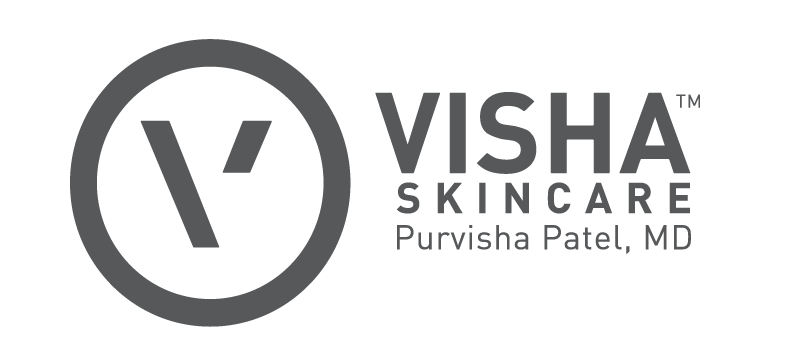
Yahoo posted "Vitamin E Oil Can Legit Help Your Most Annoying Skin Issues" featuring Dr. Purvisha Patel and Visha Skincare.
Chances are you're probably already using vitamin E oil in some of your skincare products (even if you don't realize it). The oil comes with a huge range of benefits—it fights signs of aging, protects from pollution, and minimizes the appearance of dark spots, to name a few—so it makes sense that this powerhouse ingredient is so popular.
Vitamin E also happens to be skincare BFFs with the ever-popular vitamin C, mainly because of how well they work together when combined. Interested in learning more about adding vitamin E oil to your routine? Yup, thought so.
So what is vitamin E oil, exactly?
Vitamin E is a naturally derived oil found in sources like avocados, olive oil, and sweet potatoes—and our bodies also produce it. Due to the immense vitamin E oil benefits, it's used in too many skincare products to count (it's often listed as tocopherol on the ingredient list of eye creams, serums, and moisturizers). You can also purchase pure vitamin E oil to use alone or mix into other skincare products.
How does it work?
Vitamin E oil is an antioxidant, meaning it fights the free radicals in our bodies that are caused by unprotected UV exposure and pollution. Free radicals cause cell mutation, which leads to fine lines, wrinkles, and dark spots, not to mention diseases like skin cancer, says Purvisha Patel, MD, dermatologist and founder of Visha Skincare
Vitamin E oil can also help fade dark spots and scars, calm inflammatory skin conditions, and give long-lasting moisture, all while keeping your skin’s protective barrier intact.
Can I put vitamin E oil on my face?
Totally! And you should. “Anyone who is struggling with sun damage, loss of elasticity, and dehydration can benefit from a Vitamin E oil,” says Joanna Vargas, celebrity aesthetician and founder of Joanna Vargas Salons and Skincare.
Because it absorbs UV light and acts as a natural barrier against the sun, anyone can benefit from layering it under your daily SPF for added protection.
How do I use vitamin E oil?
A highly concentrated form might be too heavy to wear under makeup during the daytime. Instead, opt for a product that contains a diluted version of vitamin E, like this hydrating and repairing serum below, that you can work into your morning routine. It will create a protective barrier on your skin's surface to keep the harmful effect of free radicals and pollution at bay.
The pure oil should be saved for nighttime use. "But because vitamin E is usually in an oil form, it does not mix well with water-based products," says Dr. Patel. So be sure to completely dry your face before applying the oil, or it won't absorb into your skin.
Not only is it highly effective on its own, but it’s even better when combined with other actives, like vitamin C and ferulic acid. “By combining the oils, vitamin E is both stabilized and its production within the skin is actually accelerated,” says Ted Lain, MD, a dermatologist with Sanova Dermatology in Austin, Texas.
While you can certainly layer products and make your own concoction, oftentimes vitamin E and vitamin C are combined into one powerful elixir that offers dual protection. "Vitamin C addresses the skin's surface, while vitamin E tends to penetrate deeper," says Vargas. So chances are your favorite vitamin C serum also contains vitamin E, allowing you to reap the benefits of the combined antioxidants.
Who shouldn’t use vitamin E oil?
While a variety of skin types benefit from this magic elixir, “I would stay away from vitamin E-heavy products if you have a tendency to break out,” says Vargas. Not only could it aggravate acne, but it can also irritate those with sensitive skin, which leads to flaking and itching.
